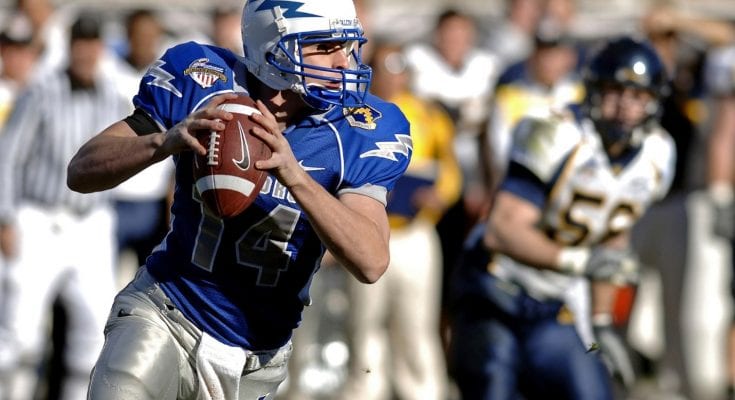From wearing XXL-sized Ronaldo jerseys at soccer practice to cheering at the Super Bowls, your enthusiasm for sports is still burning. Unfortunately, many people do not get a chance to play in the field due to a particularly nasty injury, a lack of opportunity, or simply insufficient athletic training. Choosing an athletic career might be a dream for many, but only a few can get the chance to play in the field.
However, if you’re among those who failed to grab the opportunity to perform as an athlete but are still interested in choosing a career in sports, then you’ve come to the right place. Although it might sound strange, you can sustain a successful career in the sports industry even if you’re not the most athletic person. You can always show your support and enthusiasm for the sports industry by offering certain professional assistance to those competing in the field.
Let’s not forget about some of the most amazing sports career opportunities, such as being a TV host or a sports journalist. Many people choose to explore their chances and build a successful non-athletic career. Some of these are discussed below.
- College Athletic Director
An athletic director is one of the most influential personalities in the sports industry. These individuals face complex, rewarding, and challenging leadership roles at any institute, whether at a college or high school level. In more explicit terms, athletic directors (ADs) oversee all aspects of an athletic program, including budget preparation, compliance, facility management, hiring coaches, and scheduling. So if you’re an organized individual who blooms in a leadership position and loves sports, a career as an athletic director may be the best fit for you.
Now you might be thinking, how to become a college athletic director? Well, securing this job position demands a bachelor’s degree, with physical education, sports management, and kinesiology being the core areas of study. Additionally, the director must have the ability to develop a program that can help students equip themselves with the right athletic skills.
- Sports Statistician
As the name says it all, sports statisticians collect, organize and interpret sports information by using specific formulas to provide valuable information. The objective is to offer insight into teams and athletes’ performance that can help eliminate the gaps in the sports industry. The information is further critical for athletes as they use this data to strategize game moves. Similarly, sports journalists and leagues use the information to track players’ performances, prepare reports on competitions, and determine award beneficiaries.
- Sports Marketers
Similar to any other industry, sports marketers work to promote individual interest in sports. They are further responsible for planning programs that can promote sports teams, leagues, athletes, or sports events. Following their job role, these professionals work with various other professionals, including art directors, financial team members, sales and public relations.
The job role requires an individual to exhibit strong analytical, communication, interpersonal, decision-making, organizational skills, and creativity. Besides, if you have a robust background in content marketing or social media marketing in general, this could be an ideal non-athletic career for you. You’ll be expected to create and upload content daily for promotional purposes.
- Sports Therapist
These professionals work with players to help prevent, identify, treat and manage sports injuries such as strains, sprains, fractures, etc. Besides, they are responsible for conducting regular assessments of the team’s fitness levels and advise certain types of exercises during training. Sometimes, sports therapists also counsel players on their nutrition and diet. It’s a fulfilling career because you get to work with many professional athletes and improve their fitness.
- Sports Psychologist
If you have a decent background in clinical psychology, then assisting professional athletes is a wonderful and potentially lucrative career to specialize in. It’s a great time to be a sports psychologist because this profession has received a lot of credibility in recent times. Sporting legends like Nick Faldo, Tom Brady, and Michael B. Jordan have all utilized the services of a mental health coach to ensure their mental health fitness. Pursuing a career in sports psychology might help you to implement your clinical skills while earning lucrative pay.
- Scouts and Coaches
Scouts and coaches both interact with athletes to train and prepare them for the field. Coaches are responsible for supervising and leading teams or individual players by training them for a specific sport, competition, or game. On the other hand, scouts recruit and select athletes based on their physical skills, attitude, and other factors to determine if they can work along with a team. By utilizing strong communication and interpersonal skills, they convince athletes to play for a specific team. Generally, a bachelors degree in exercise science, sports management, kinesiology, and physical education would suffice to perform in this job role.
Conclusion
You see, you don’t need to play in the field to be part of the industry – pursuing the careers mentioned above can help you to make your dream come true. So if you’re smart enough to grab an opportunity, then there’s no reason to hold back on making a living out of it. Who knows, you might even get a chance to meet your favorite heroes. So go ahead, find your non-athletic spark, and take the plunge!
Additional Resources:
Green Bay Packers
Boston Celtics
LA Lakers
LA Dodgers
Dallas Cowboys
Minnesota Vikings
KC Chiefs
Seattle Seahawks



